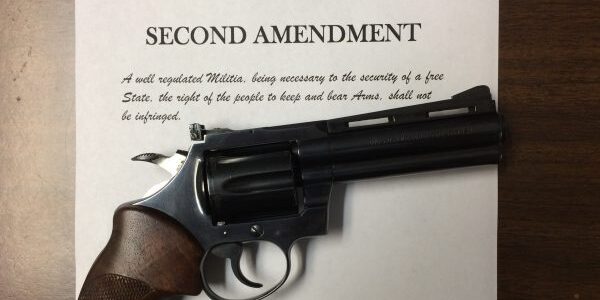
By Dave Workman
Editor-in-Chief
On straight party-line votes, the Washington State House Committee on Civil Rights & Judiciary has passed three restrictive gun control measures with “do-pass” recommendations, igniting a fury among Second Amendment advocates.
House Bills 1132, 1152 and 1163 all add new restrictions on gun owners, and all passed out of committee on 8-5 votes. All three bills share many of the same sponsors, all Democrats.
HB 1132 claims to “enhance public safety by limiting bulk purchases and transfers of firearms and ammunition.” It places a limit of one firearm purchase per month, and limits gun owners to purchasing a maximum of 1,000 rounds of ammunition regardless of caliber or gauge in a 30-day period, except for .50-caliber ammunition, which is limited to 100 rounds per month.
While KCPQ/Fox News 13 is quoting the purpose of the bill as written by the sponsors, opponents say this legislation will do nothing to improve public safety or prevent violent crime. During public testimony in January, opponents contended this bill would hamper competitions and firearms training efforts, and may be unconstitutional under both the state and federal constitutions, and some critics are concerned this would lead to back-door gun registration by keeping tabs on people who buy ammunition.
Likewise, the Fox News affiliate also says the other two measures are also supposed to “enhance” public safety.
HB 1153 mandates so-called “secure storage” of firearms when not in use. It ratchets down on leaving firearms in vehicles, with some exceptions, and in residences. Violators would be subject to fines of up to $1,000. It isn’t clear how the requirement would be enforced.
HB 1163 creates a permit-to-purchase requirement, requiring proof of training to include a live-fire exercise, and it would also apply to obtaining a concealed pistol license. The language is plain: “AN ACT Relating to enhancing requirements relating to the purchase, transfer, and possession of firearms by requiring a permit to purchase firearms, specifying requirements and standards for firearms safety training programs and issuance of concealed pistol licenses, specifying circumstances where a firearm transfer may be delayed, requiring record keeping for all firearm transfers, and establishing reporting requirements regarding permits to purchase firearms and concealed pistol licenses.”
There are approximately 700,000 active CPLs in the state, and the requirement for being issued a license is that someone clear a background check. There are concerns that there are neither the available instructors or range facilities to accommodate all the people wanting to buy a gun or carry a defensive sidearm.
Here’s a roster of the lawmakers who have signed on to sponsor one or more of these bills:
Liz Berry, April Berg, Lisa Callan, Julio Cortes, Lauren Davis, Beth Doglio, Davina Duerr, Darya Farivar, Jake Fey, Joe Fitzgibbon, Mary Fosse, Roger Goodman, Mia Gregerson, Natasha Hill, Mari Leavitt, Debra Lekanoff, Nicole Macri, Sharlett Mena, Greg Nance, Edwin Obras, Timm Ormsby, Lisa Parshley, Strom Peterson, Gerry Pollet, Alex Ramel, Julia Reed, Alicia Rule, Cindy Ryu, Osman Salahuddin, Jamila Taylor, Tarra Simmons, Chipalo Street, Steve Tharinger, Amy Walen, and Sharon Wylie.
According to MyEdmonds news, the current gun laws in Washington “have an A-minus rating from the Giffords Law Center to Prevent Gun Violence, ranking ninth in the country.” This means the state, which was once considered one of the best in the nation for fair and moderate gun laws, now has among the strictest gun laws.
However, also according to MyEdmonds, “In 2022, the latest year for which comprehensive federal data is available, the gun death rate in Washington increased 11% from the previous year, for a total of 1,022 deaths, according to the federal Centers for Disease Control and Prevention. About two-thirds of those were suicide.”
In the 11 years since Washington voters first adopted stricter gun control in 2014, the number—not just the rate—of homicides in the state has doubled, according to data from the FBI and Washington Association of Sheriffs and Police Chiefs.



